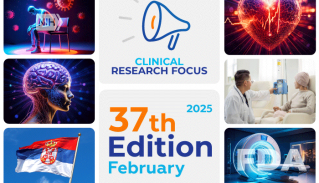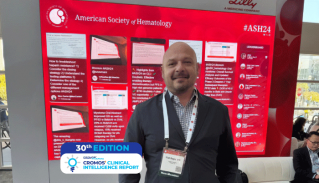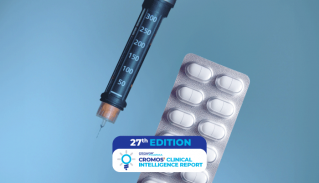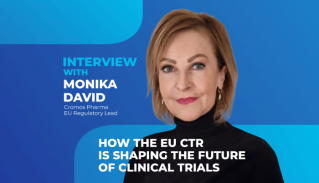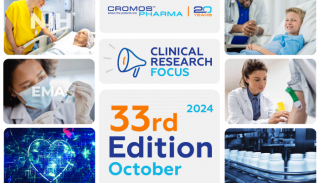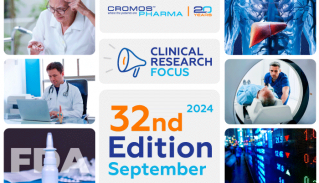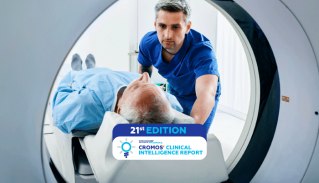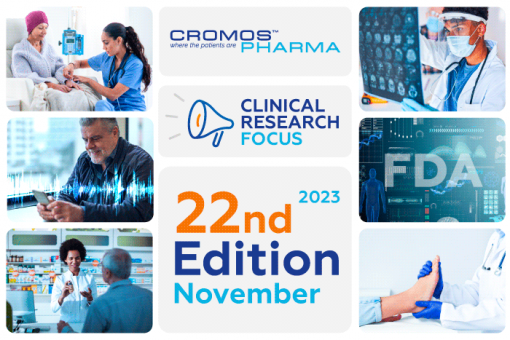
Clinical Research Focus. 22nd Edition
Fit-for-Purpose Biotech – CRO Collaboration: The FSP Model
In the evolving biotech landscape, the Functional Service Provider (FSP) model is a strategic alliance that offers biotech companies the ability to access specialized services and expertise in specific drug development areas. Unlike traditional outsourcing, FSP models bring a new level of flexibility, enabling biotech firms to engage CROs for specific functions, be it clinical trials, data management, or regulatory affairs. This dynamic approach is reshaping the future of biotech collaboration.
Please follow the link to learn more.
 Listening to Diabetes: Smartphone Voice Analysis for T2DM Screening
Listening to Diabetes: Smartphone Voice Analysis for T2DM Screening
Imagine if your voice could reveal more than just your words. In a groundbreaking study, researchers explored the possibility of using voice analysis to screen and monitor Type 2 Diabetes Mellitus (T2DM). The aim was to uncover hidden insights by analyzing voice recordings from 267 participants in India, with the goal of differentiating between nondiabetic and T2DM individuals. Participants recorded a specific phrase multiple times daily for two weeks using a smartphone app, resulting in 18,465 recordings. Fourteen acoustic features were extracted from each recording, revealing significant differences in the voices of nondiabetic and T2DM individuals. This suggests the potential of voice analysis as a T2DM prescreening or monitoring tool, especially when combined with other risk factors.
Please follow the link to learn more.
 Enhancing Oncology Drug Dosage Optimization: Project Optimus
Enhancing Oncology Drug Dosage Optimization: Project Optimus
In the quest to balance timely access to new cancer drugs with a profound understanding of patient response variability, the FDA is taking pioneering steps within the realm of oncology. Factors such as patient diversity, disease variations, and the need for individualized dosages underscore the critical importance of dosage optimization. Project Optimus, a groundbreaking initiative led by the FDA’s Oncology Center of Excellence (OCE), is at the forefront of these efforts.
Please follow the link to learn more.
 New Treatment Option Recommended for Advanced Multiple Myeloma
New Treatment Option Recommended for Advanced Multiple Myeloma
The EMA committee has recommended a conditional marketing authorization in the EU for Elrexfio (elranatamab) as a standalone therapy for adults with heavily pre-treated multiple myeloma. This is intended for patients who have undergone at least three previous treatments, and their condition has deteriorated since their last treatment. The recommendation is based on a phase 2 clinical trial with promising results: 61% of participants with refractory multiple myeloma responded positively to Elrexfio, and over 70% of responders experienced a potential 15-month period without disease progression.
Please follow the link to learn more.
 Exploring Exosomes’ Impact on Diabetic Wound Inflammation
Exploring Exosomes’ Impact on Diabetic Wound Inflammation
Foot ulcers, persistent wounds common in diabetes, can lead to severe outcomes. Researchers, led by Drs. Chandan Sen and Subhadip Ghatak at the University of Pittsburgh, are investigating the role of exosomes in chronic wound inflammation. Exosomes are tiny sacs released by cells, containing proteins, peptides, and messenger RNA. The team is particularly interested in keratinocyte-derived exosomes, essential for skin healing and barrier function, and aims to understand their involvement in diabetic wound inflammation.
Please follow the link to learn more.
 Promising Results for Lung Cancer Patients with Brain Metastases
Promising Results for Lung Cancer Patients with Brain Metastases
Researchers found that fam-trastuzumab deruxtecan-nxki (Enhertu; T-DXd) consistently improved brain metastases in HER2-mutated non-small cell lung cancer. In a combined analysis of DESTINY-Lung01 and DESTINY-Lung02 trials, the antibody-drug conjugate (ADC) demonstrated strong intracranial responses at different doses. Patients with brain metastases treated with 5.4 mg/kg of T-DXd in the DESTINY-Lung02 study had a 50% confirmed intracranial response rate, with a complete response rate of 21.4% and a partial response rate of 28.6%. Additionally, the intracranial disease control rate was 92.9%, and the response duration was approximately 9.5 months. These findings were presented at the 2023 ESMO Congress.
Please follow the link to learn more.
 FDA Initiates Formation of a New Advisory Committee for Digital Health Technologies
FDA Initiates Formation of a New Advisory Committee for Digital Health Technologies
The FDA has introduced a new initiative in the form of the Digital Health Advisory Committee. This committee’s primary objective is to assist the FDA in exploring the intricate scientific and technical aspects of digital health technologies (DHTs), encompassing domains such as artificial intelligence/machine learning, augmented reality, virtual reality, digital therapeutics, wearables, remote patient monitoring, and software.
Please follow the link to learn more.

 Listening to Diabetes: Smartphone Voice Analysis for T2DM Screening
Listening to Diabetes: Smartphone Voice Analysis for T2DM Screening Enhancing Oncology Drug Dosage Optimization: Project Optimus
Enhancing Oncology Drug Dosage Optimization: Project Optimus New Treatment Option Recommended for Advanced Multiple Myeloma
New Treatment Option Recommended for Advanced Multiple Myeloma Exploring Exosomes’ Impact on Diabetic Wound Inflammation
Exploring Exosomes’ Impact on Diabetic Wound Inflammation Promising Results for Lung Cancer Patients with Brain Metastases
Promising Results for Lung Cancer Patients with Brain Metastases FDA Initiates Formation of a New Advisory Committee for Digital Health Technologies
FDA Initiates Formation of a New Advisory Committee for Digital Health Technologies
